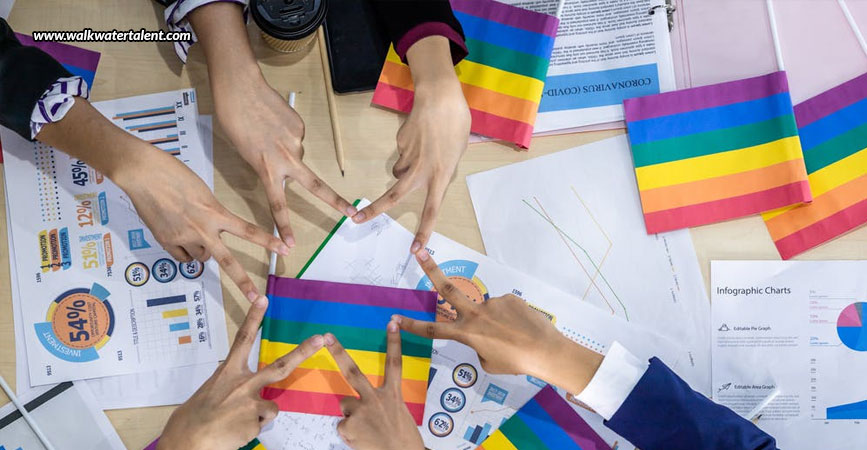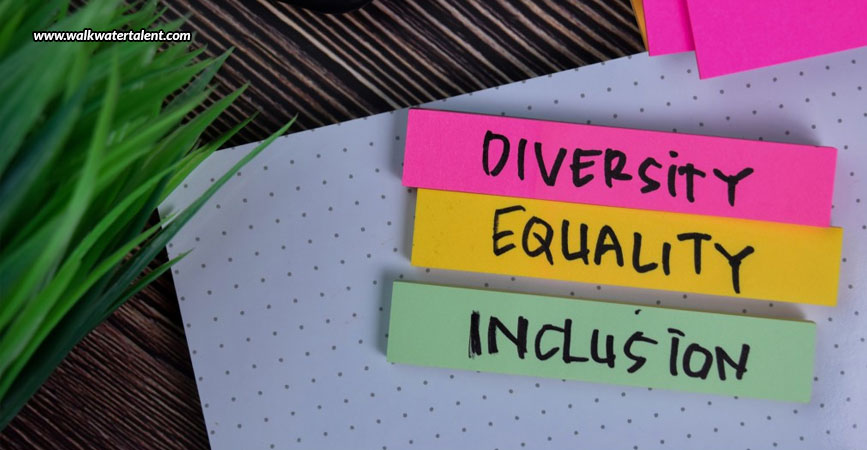
Pride Month is being celebrated across the world this month to express solidarity with the LGBTQ (Lesbian, Gay, Bisexual, Transsexual, Queer) community. This is a good time to assess the state of diversity and inclusion around the world and in India, and understand what more needs to be done.
- The standard advisory for the soldiers of the United Nations peacekeeping forces for respecting diversity talks mostly about respecting cultural differences.
- The 2020 Annual Diversity report of Google mentions progress made in hiring of people of color, women, the LGBTQ+ community, and persons with disability, among others.
- The Tata group also mentions all of these. Additionally, the document goes on to talk about mental ability, parental status, education and experience.
- On the other hand, the Google report also mentions military veterans, which the Tatas did not.
The reason for this comparison is to underline the fact that although diversity is a word that has found common usage across the world, the understanding of diversity varies across countries and organizations. We need to keep those distinctions in mind while talking of diversity and inclusion in different countries.
Coming to inclusion, a D&I leader for an Asian electronics giant points out a similar point to ponder. She says, “Diversity is measurable. One can hire and fix it. But inclusion is what makes it work – and it is not a number, it is not tangible as it is a feeling. How organizations define, create and measure inclusion makes the difference”.
With this context setting in place, let us now look at the situation around the world.
The story so far
 Diversity and inclusion in organizations is given far more importance almost everywhere in the world today than it was a decade or two back. Fair hiring practices are the most common way for organizations to ensure diversity at the workplace. But many organizations have gone beyond that and put in place structures and hierarchies too. Aon Affinity, for example, has set up business resource groups (BRG) for different ethnic and racial groups.
Diversity and inclusion in organizations is given far more importance almost everywhere in the world today than it was a decade or two back. Fair hiring practices are the most common way for organizations to ensure diversity at the workplace. But many organizations have gone beyond that and put in place structures and hierarchies too. Aon Affinity, for example, has set up business resource groups (BRG) for different ethnic and racial groups.
Let us look at some more encouraging stories from around the world.
- Cultural diversity: This is most important for companies which are present in multiple continents. Respect for different cultures helps employees understand the perspectives of colleagues who are different culturally. For a company like Nestle, with consumers around the world, having employees from different cultures has helped in better marketing as well.
- Racial and ethnic diversity: Kaiser Permanente is a 75 year old mid-size US pharmaceutical company with more than 3 lakh employees, almost a third of whom are doctors or nurses. Two out of every three of their employees are racial and ethnic minorities. Three of four employees are women. But more importantly, 38% of their Board consists of women, and 46% of the Board is from non-white races.
- Gender diversity: The Volvo group has production facilities in 18 countries and markets its 12 brands in 190 markets worldwide. They were among the first of 50 Europe based countries to sign a pledge to work towards making their workplaces more inclusive and diverse. Instead of pushing for gender inclusivity because it is the ‘right thing’, Volvo firmly believes that gender equality helps improve business performance. They aim to have 35% female leaders by 2030.
How is India faring?
 India has been regarded for long as an inclusive society, with people of different faiths coexisting peacefully for centuries. Almost all the religions practiced in India advise respect and service to people with disabilities. The Hindu pantheon of supreme beings includes a large number of Goddesses who are revered. But has the respect for people who are different been adequately mirrored in our corporate workplaces?
India has been regarded for long as an inclusive society, with people of different faiths coexisting peacefully for centuries. Almost all the religions practiced in India advise respect and service to people with disabilities. The Hindu pantheon of supreme beings includes a large number of Goddesses who are revered. But has the respect for people who are different been adequately mirrored in our corporate workplaces?
Infosys has been a torchbearer for India’s IT industry for decades. They have not lagged in diversity and inclusion either. A fourth of their Board, and 38% of their workforce consists of women. Infosys is deeply committed to inclusive hiring and workplace policies for other disadvantaged minorities as well.
Another issue unique to India is that diversity is almost synonymous to gender equality and tends to ignore the need for inclusion of other disadvantaged groups. As Chitbhanu Nagri, SVP (People Operations) at Razorpay, says “Diversity is still largely focused on gender agenda in our country and is seen as a metric/outcome to achieve. What we really need is the sensitization of mindset at the foundation level to build on the agenda of inclusivity.”
Taking decisive steps to ensure an inclusive workplace is not limited to large corporations with thousands of employees. Raipur, the capital of Chhattisgarh state in India, is a small city with mostly small homegrown enterprises. A small cafe tucked away in Raipur walked the talk more than 8 years back. Their two focus areas for hiring were people with hearing impairment and people of transsexual gender. The place? Nukkad Teafe, Raipur. In case you get a chance to visit, do not miss the chilli paneer sandwich with the kesar chai.
Implementing diversity and inclusiveness need not be only about big-ticket interventions. Often the small things also matter. Here is what Rajiv Sharma, Director People and Culture – India, at Aristocrat Technologies had to say about their D&I initiatives – “We have been able to successfully reword all our people policies in a gender-neutral language and tone. This makes our commitment to inclusion visible. Our maternity benefits are not only extended to women but anyone who identifies themselves as the mother of the newly born. Our medical expense insurance is extended to same sex partners and they are entitled to adoption time off in lieu of maternity/paternity benefits.”
In spite of all the good work done in India, one segment still has some catching up to do – startups. At WalkWater, we have done a lot of executive hiring for Indian startups, and we do not see D&I being too high on the priority list for most of them. This is probably because startups are still busy finding the product-market fit and talent which is competent and willing to work long hours. Larger corporations have large HR and L&D teams, and some from those teams run the diversity hiring and inclusiveness activities. Startups might not have that bandwidth, but if the founders of those startups commit to D&I as a guiding principle, then diversity hiring, or inclusive policies can be a natural outcome rather than something that startups focus on after they have hit critical mass.
The way forward
 As the examples above show, the world has taken decisive steps to ensure diversity and inclusion at the workforce. But there is a lot more that needs to be done.
As the examples above show, the world has taken decisive steps to ensure diversity and inclusion at the workforce. But there is a lot more that needs to be done.
- Hiring should not be restricted to tokenism only but should be able to place diverse employees of different genders, cultures and races in decision making positions where they are able to make an impact.
- Diversity hiring should not be restricted to gender equality only, but should also include persons with disability, alternate sexuality, neurodiversity, among others.
- Compensation analysis needs to be an ongoing process to ensure that employees of different backgrounds are paid at par with everyone else with the same education and experience.
- The size or vintage of an organization should not be seen as an impediment.
- Leaders must make their commitment to diversity visible in word and deed.
What diversity and inclusion mean at WalkWater
 For the last ten years, WalkWater has built an enviable track record across industry sectors, both in India as well as globally. Intensive Client Partnering, Deep Domain Knowledge and Global Coverage are just a few of our strengths that have made us one of the best executive search firms in India. We consider our diversity and inclusiveness to be one of the key reasons for our success. That is why more than half of our leadership team and 60% of our employees are women. We have found success in helping clients close leadership searches for roles where diversity has traditionally been difficult to find, such as R&D, Product development, Supply Chain, IT, Finance and Indirect procurement. We would be happy to help you map diverse talent and build a robust pipeline of diversity leaders.
For the last ten years, WalkWater has built an enviable track record across industry sectors, both in India as well as globally. Intensive Client Partnering, Deep Domain Knowledge and Global Coverage are just a few of our strengths that have made us one of the best executive search firms in India. We consider our diversity and inclusiveness to be one of the key reasons for our success. That is why more than half of our leadership team and 60% of our employees are women. We have found success in helping clients close leadership searches for roles where diversity has traditionally been difficult to find, such as R&D, Product development, Supply Chain, IT, Finance and Indirect procurement. We would be happy to help you map diverse talent and build a robust pipeline of diversity leaders.
By Ashutosh Khanna,
Co-founder & Director,
WalkWater Talent Advisors








